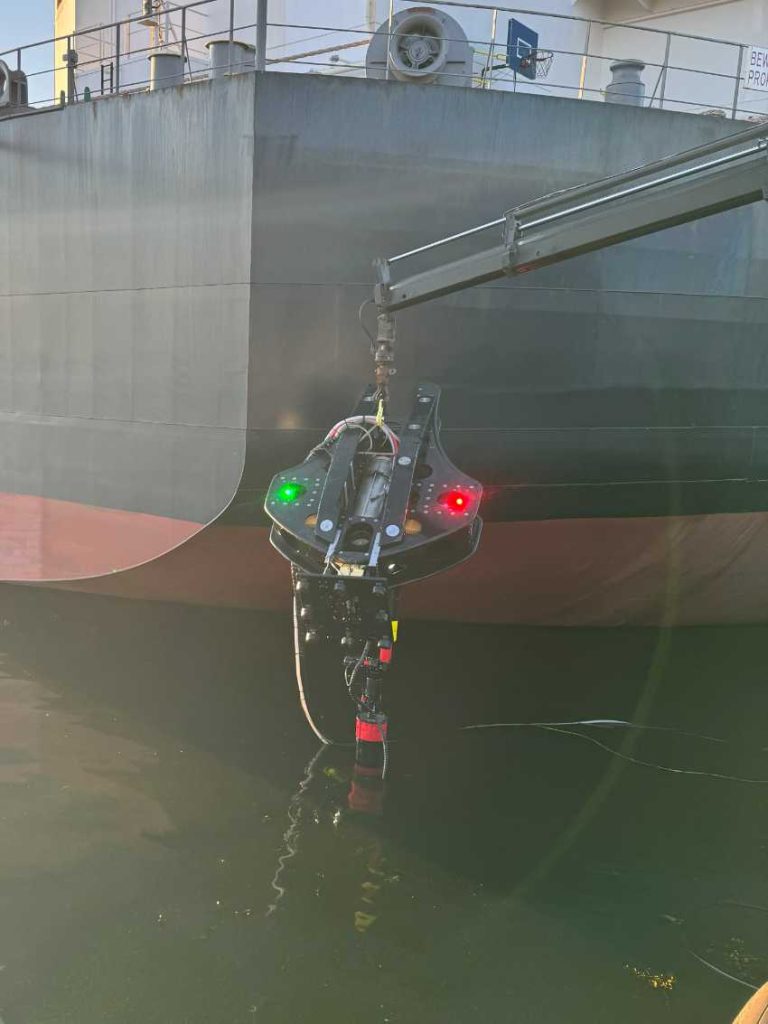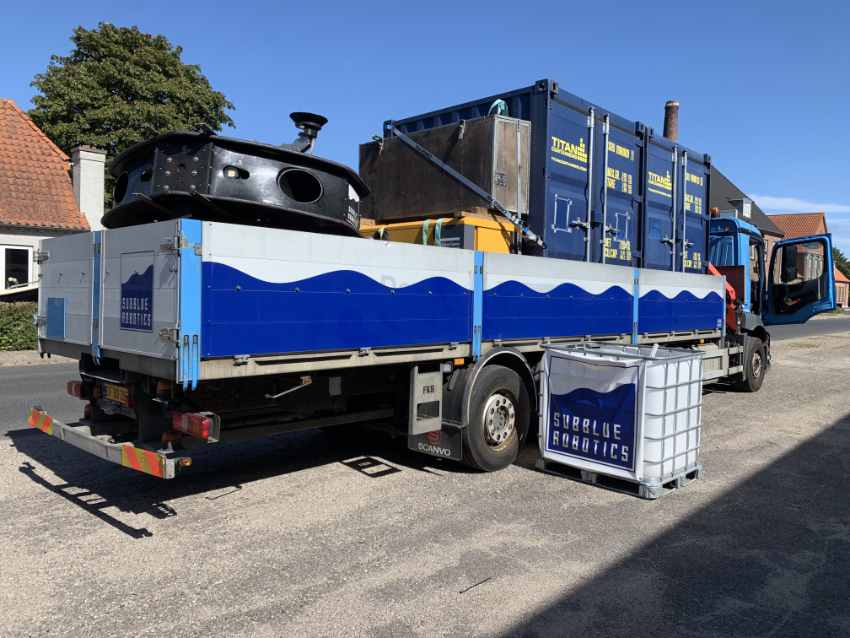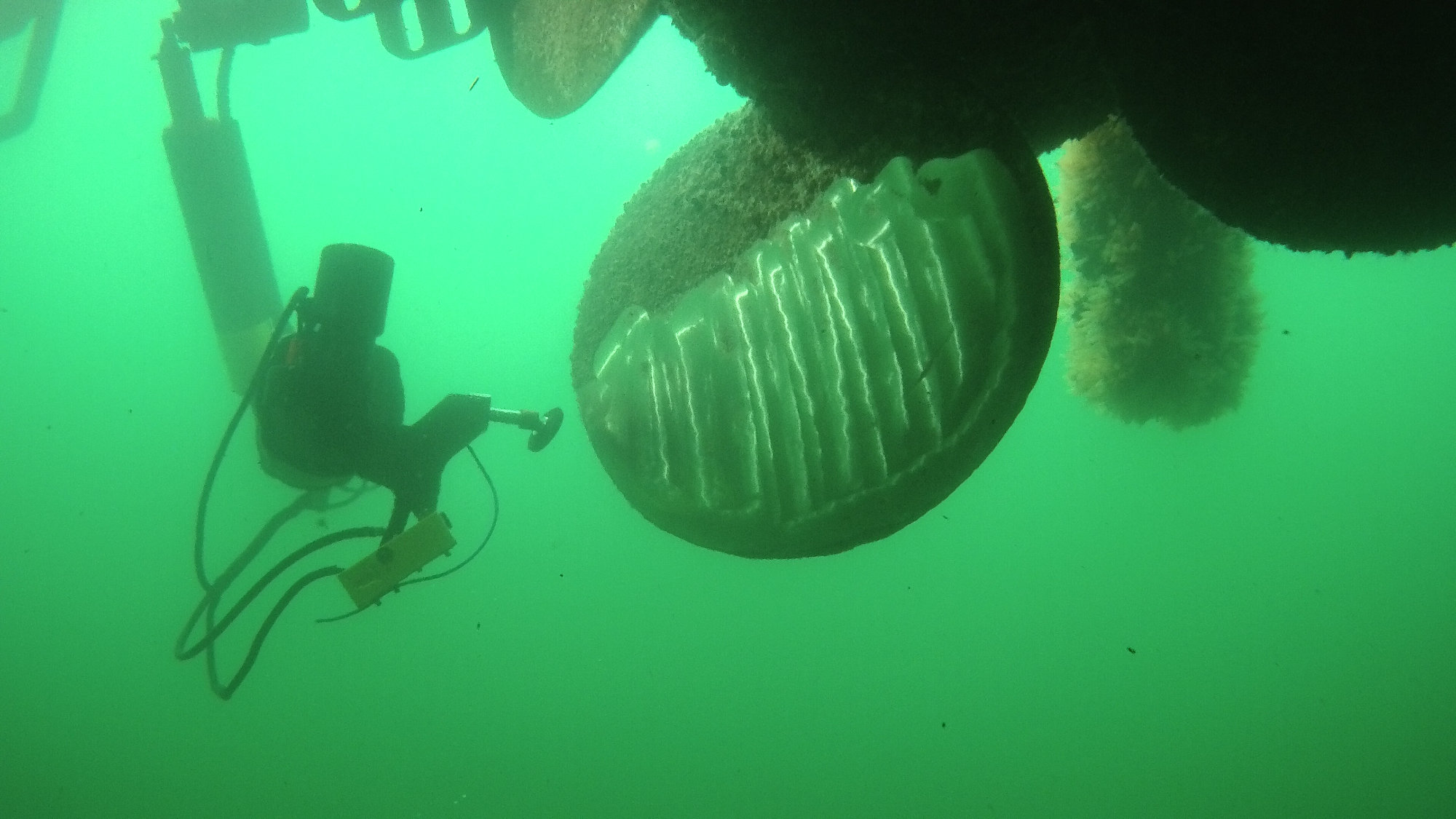SubBlue Robotics is a Danish technology company specialized in robotic systems for underwater polishing of propellers on commercial ships. Their mission is to make underwater work safer, better, and more sustainable by automating repetitive and high-risk operations traditionally carried out by divers. Manned by a team with long experience in maritime operations and robotics, SubBlue develops, manufactures, and operates remotely controlled systems that perform propeller polishing below the waterline.
Interview with Teddy Folmer, CEO of SubBlue Robotics.
What are the main areas of activity of the company?
Teddy Folmer: Our core activities revolve around robotic propeller polishing. We provide shipowners and operators with efficient underwater maintenance services that minimize downtime and fuel consumption. We can perform our work during cargo operations and 24/7.
SubBlue operates both as a service provider and a technology developer. We manage our own fleet of polishing robots and continue to enhance them with new modules, sensors, and AI-based tools that improve performance and sustainability.
What’s the news about new products/services?
T.F: Our latest innovation is a biofouling and debris collection system integrated into our cleaning robots. This allows us not only to polish propellers efficiently but also to capture and remove the material that is released during the process. The collected biofouling and micro-debris are brought to shore for proper disposal, ensuring that no invasive species or pollutants are spread between ports.
This development is a major step forward in aligning vessel maintenance with environmental compliance and supports upcoming IMO guidelines on biofouling management. We see strong interest from shipowners who are looking to future-proof their maintenance routines while reducing operational impact.

What are the ranges of products/services?
T.F: Our main offering is a robotic propeller polishing service delivered in major European ports, including Rotterdam being Europes largest. The system can polish large propellers safely, without the need for divers.
Beyond hardware, SubBlue also provides detailed reporting that provides full transparency on completion of each job done.
What is the state of the market where you are currently active?
T.F: The maritime industry is under increasing pressure to reduce emissions, improve efficiency, and comply with environmental regulations. Polished propellers is a critical part of that agenda — even minor fouling can increase fuel consumption by several percent.
We see growing demand for eco-friendly, technology-driven polishing solutions as traditional diver-based methods face new environmental and safety restrictions. Ports and authorities are also setting higher standards for in-water polishing, which creates opportunities for robotic solutions like ours. The market is evolving rapidly, and SubBlue is well positioned to meet this demand with scalable, compliant technology.
What can you tell us about market trends?
T.F: Digitalization and sustainability are reshaping the maritime service sector. The focus is shifting from reactive maintenance to continuous performance monitoring and preventive care. Operators are looking for ways to quantify efficiency gains and document compliance, and robotics plays a key role in enabling that.
We also observe a broader trend toward localized service networks — clients want fast, predictable turnaround in port without costly off-hire periods. This creates a strong case for flexible robotic systems that can be mobilized quickly and operate under different regulatory conditions.

What are the most innovative products/services marketed?
T.F: The integration of debris collection into underwater propeller polishing is among our most important innovations. It turns what used to be a purely mechanical cleaning task into a closed-loop process that protects the marine environment.
In addition, our robots are designed to operate in challenging port conditions with limited visibility and with currents. They use very strong thrusters and gentle, stable motions to optimize polishing efficiency while minimizing wear on propellers (no diamond disc needed), yet delivering a much better result (Rupert scale A) than what you typically see when divers have done same job. Combined with our data-driven reporting, this makes SubBlue’s system one of the most advanced and environmentally responsible solutions on the market today.
What estimations do you have for the end of 2025?
T.F: We expect to close 2025 with a significant increase in operations and expanded geographical coverage. Our goal is to establish permanent operational bases in key world wide ports and continue developing next-generation robotic systems with improved autonomy and data capabilities.
The demand for sustainable vessel maintenance is accelerating, and we anticipate strong growth as the industry moves toward stricter biofouling and emission standards. SubBlue Robotics will continue to focus on innovation, reliability, and measurable results — helping our clients operate more efficiently and responsibly.


